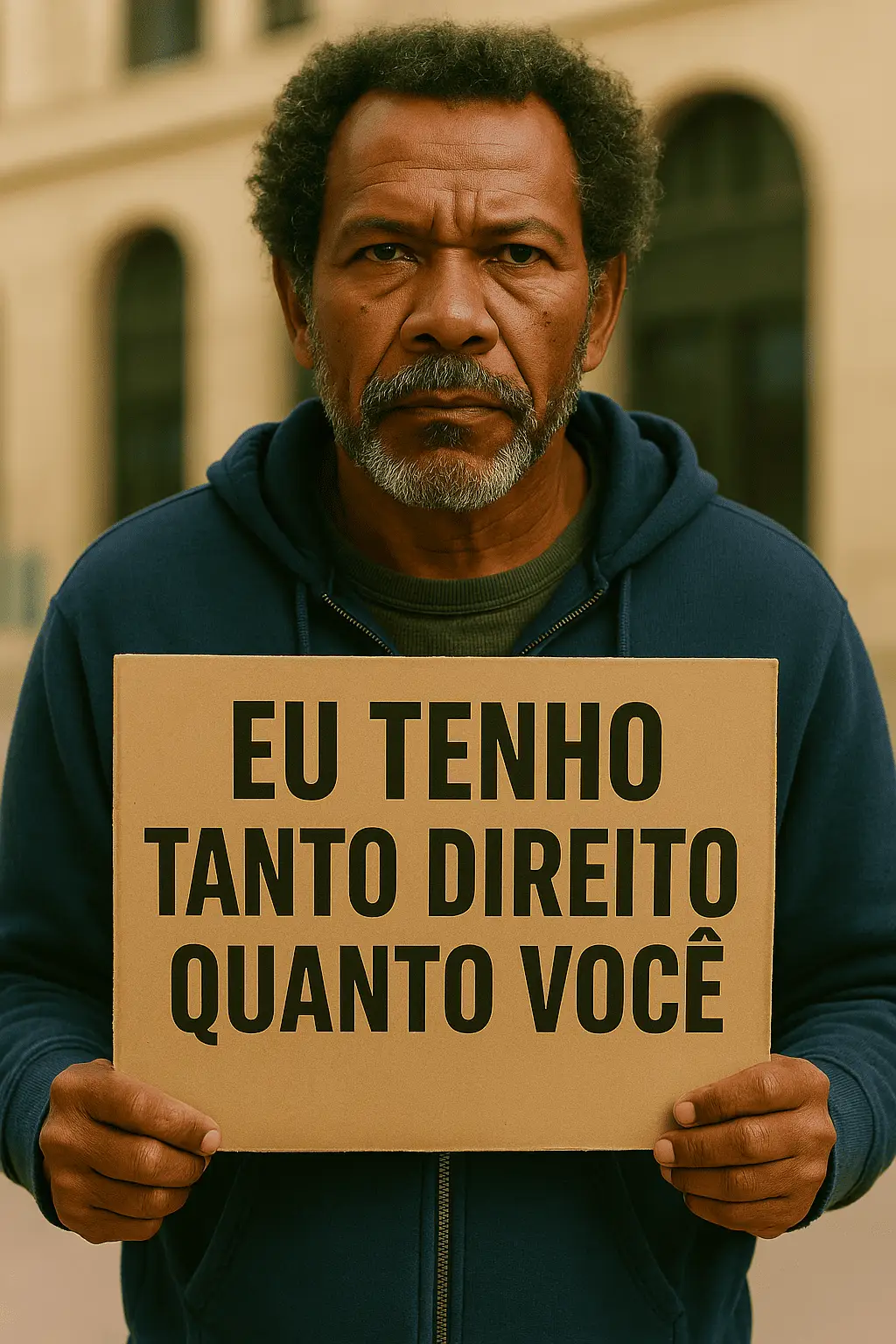The Decree no. 7.053 of 23 December 2009 defines the homeless population as a heterogeneous population group that has in common extreme poverty, broken or weakened family ties and the lack of regular conventional housing, and that uses public streets and degraded areas as a place to live and make a living, on a temporary or permanent basis, as well as shelters for temporary overnight stays or temporary housing.
The street is not the absence of citizenship - it is proof that it has failed.
We believe that nobody chooses to live on the pavement. Nobody asks to be invisible. What many call "abandonment" or "vagrancy" is, more often than not, the result of forced evictions, broken ties, poorly applied public policies and a persistent cycle of exclusion.
What authorities label "removal" or "urban requalification" is often an attempt to erase the visible signs of inequality. But where the government tries to clean up, Solidaritas wants to shine a light.
We exist to break the cycle of misinformation, fear and indifference. We believe in journalism that listens before judging, that informs in order to transform and that gives visibility to those who have been systematically pushed out of the city, out of politics and out of language.
We're not charity. We're not welfarism. We're a bridge.
We are between the city that claims to be just and the city that expels.
We are between those who ignore and those who finally see.
We work to build a new imaginary about those who live on the streets. We give face to stigma, body to politics and voice to exclusion. The street speaks - and Solidaritas is here for her to be heard with respect, context and courage.
Information is symbolic housing. Words are shelter. Listening is public policy.
Solidaritas: information that disarms prejudice.

